Difference between revisions of "Conferences/FOSDEM/2010/CFP"
| Line 342: | Line 342: | ||
|- | |- | ||
| Speaker Photo (128x128 PNG) | | Speaker Photo (128x128 PNG) | ||
| − | | [http:// | + | | [http://archive.fosdem.org/2009/schedule/images/speaker-271-128x128.jpg http://archive.fosdem.org/2009/schedule/images/speaker-271-128x128.jpg] |
|} | |} | ||
[[Category:FOSDEM]] | [[Category:FOSDEM]] | ||
Latest revision as of 08:49, 11 January 2010
Deadline: Friday, December 18th
Proposals
Local community building - Open-Source-Treffen
| Local community building - Open-Source-Treffen
| |
| Topic | Local community building - Open-Source-Treffen |
| Session/duration | ?? / ?? |
| Speaker | Florian Effenberger, OpenOffice.org Carsten Book, Mozilla |
| Biography | Florian Effenberger has been an open source evangelist for many years. He is co-lead of the international OpenOffice.org marketing project as well as a member of the management board of the non-profit OpenOffice.org Deutschland e.V. He is also a frequent contributor to a variety of professional magazines worldwide. |
| Abstract (1-2 paragraphs) | Mozilla and OpenOffice.org jointly organize so called open source meetings ("Open-Source-Treffen") in Germany to foster the idea of community building and to support exchange amongst projects and communities. This talk gives an overview of the idea, on what we achieved so far, what our plans for the future are - and how you can help! |
| Description | Most people use open source software day by day. A fact that most of them do not know: Often, this free software is being developed, documented, marketed and improved by volunteers in their free time. Many open source projects work on fostering the idea of free software and open content, and a lot of users benefit from their efforts. Other than with proprietary software, users can get in direct touch with the communites via blogs, IRC channels, mailing lists or forums.
Despite the modern way of communicating, personal contact still is the best way to get to know each other. Meeting the people behind the names in reality is a great experience, and helps users of finding their way into open source communites to engage themselves. Therefore, Mozilla and OpenOffice.org jointly organize the so-called "Open-Source-Treffen" ("Open Source Meetings") to help open source projects in meeting their end-users and vice versa. Members of the community can get in touch with their users to gather valueable feedback, and open source adopters meet other supporters from their area. In the German city of Munich, the "Open-Source-Treffen" have been taking place regularly, and the idea is to spread the word for other areas, engaging community members to set up more meetings. Carsten Book of Mozilla and Florian Effenberger of OpenOffice.org, founders of the "Open-Source-Treffen", introduce their vision and tell about the previous experiences. Audience for this talk are open source communities wishing to set up their own meetings as well as interested users who love to learn more about the idea. |
| Additional speaker info | http://www.opensourcetreffen.de |
| Speaker Photo (128x128 PNG) | 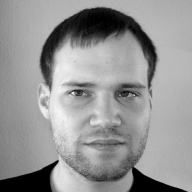 See User:Floeff See User:Floeff |
ODF Tools and Resources
| ODF Tools and Resources | |
| Topic | OpenDocument format (ODF) |
| Session/duration | Talk / 30 mins |
| Speaker | Bart Hanssens |
| Biography | Bart Hanssens is chairing the OASIS ODF Interop and Conformance TC, co-organizer of the ODF plugfests and has been testing various ODF applications for the Belgian Federal government in his role as Interoperability Expert at Fedict |
| Abstract (1-2 paragraphs) | This session lists the various ODF tools and libraries that are "out there", and where one can find additional info about ODF itself. |
| Description | ODF has become a popular document format, but for new developers it isn't always clear what open source tools exist and where to find them. This presentations aims to list the most interesting tools, libraries, projects and other resources available. |
| Additional speaker info | http://be.linkedin.com/in/barthanssens |
| Speaker Photo (128x128 PNG) | (See LinkedIn profile) |
lpOD – languages & platforms OpenDocument
| lpOD – languages & platforms OpenDocument | |
| Topic | OpenDocument format (ODF) |
| Session/duration | TALK / 30min |
| Speaker | Luis Belmar-Letelier and Jérôme Dumonteil |
| Biography | Luis Belmar-Letelier PhD in Physics, CEO of Itaapy a Python agil shop since 2003, work with the ODF Toolkit Union, and is the coordinator of the lpOD project http://lpod-project.org |
| Abstract (1-2 paragraphs) | Presentation of the lpOD -- languages & platforms OpenDocument |
| Description | lpOD, is a Free Software project that offers, for high level use cases, an application programming interface dedicated to document processing with the Python, Perl and Ruby languages. It’s complying with the Open Document Format (ODF). |
| Additional speaker info | http://fr.linkedin.com/in/luisbelmarletelier |
| Speaker Photo (128x128 PNG) | |
ODF on the server - ODFDOM architecture
| ODF on the server - ODFDOM architecture | |
| Topic | OpenDocument format (ODF) |
| Session/duration | talk / 30min |
| Speaker | Svante Schubert |
| Biography | Svante Schubert (Sun Microsystems Inc.) has been a full-time developer for OpenOffice.org since its foundation. On OpenOffice.org he is the co-lead of the 'XML project', with emphasis on XML based filters and the new RDF metadata model of the OpenDocument Format 1.2. On the 'ODF Toolkit project' he is responsible for the new ODFDOM library. He works on the ODF standardization in the OASIS ODF TC, the German DIN and ISO SC34. |
| Abstract (1-2 paragraphs) | ODFDOM is the name of the free OpenDocument framework, which was recently published in version 0.75 to support ODF 1.2. Its overall purpose is to provide the ODF developer community a lightweight programming API in order to easily access and manipulate ODF documents. With its version 0.75, ODFDOM supports all ODF 1.2 elements and attributes, generated from the OpenDocument RelaxNG schema directly into the Java source code. The upcoming presentation will give an overview over the architecture, design ideas and in addition deliver insights about the roadmap and upcoming features. |
| Description | See http://odftoolkit.org/projects/odfdom/pages/Home for details... |
| Additional speaker info | http://blogs.sun.com/gullfoss |
| Speaker Photo (128x128 PNG) | 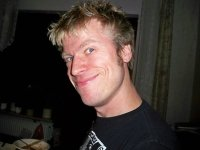
|
Tips and Tricks for Extension Developer
| Tips and Tricks for Extension Developer | |
| Topic | OpenOffice.org |
| Session/duration | talk / 45 |
| Speaker | Juergen Schmidt |
| Biography | Juergen Schmidt is working for Sun Microsystems in the StarOffice group for more then 12 years. He was deeply involved in the development of the UNO component model which is the foundation for the OpenOffice.org API. The OpenOffice.org community is one aspect of his daily work. He is involved in the OpenOffice.org project since the beginning, he is the project lead of the OpenOffice.org API and the Extensions project and he is a member of the OpenOffice.org Community Council. His main goal is to spread the knowledge around the programmability features of OpenOffice.org around the world and to show that it is more than only an office productivity suite. He speaks frequently about the programmability features of OpenOffice.org on international conferences. |
| Abstract (1-2 paragraphs) | The session will give an overview about the Extension infrastructure and will give tips and hints what's most important to integrate well in OpenOffice.org and to provide a more professional extension. Extensions provide often the necessary connector from OpenOffice.org to other software systems and the better they are integrated the better is the overall user experience and the interoperability. |
| Description | OpenOffice.org Extensions provide a very good mechanism to extend OpenOffice.org with new and often specialized new functions. The extension infra structure gets better and better and an extension developer should make use of all the available feature to integrate best in the office. The session will give an overview about the Extension infrastructure and will give tips and hints what's most important to integrate well in OpenOffice.org and to provide a more professional extension. Often extensions are the beginning of more advanced development tasks that will go deeper in the core code of OpenOffice.org whereas extensions use API's only. The advantage of extensions is that you can work on a standalone mini project that uses official API's only and that you can learn the basics and secrets of OpenOffice.org step by step. But extensions can not solve all problems and often additional changes in the core or even new API's are necessary to solve a specific task. But as mentioned before extensions provide a smooth way to get started and to dive deeper and deeper into the large project code base over time. OpenOffice.org is a very huge project and the start to develop with and for OpenOffice.org is not easy and the hype factor is also not the highest one. But it must be something behind this project that big companies hire special people to work on campaigns against OpenOffice.org and open source in general. Is it still David versus Goliath or has the situation changed a little bit? Who knows but you can be part of the huge and worldwide community and can start to develop with and for OpenOffice.org. |
| Additional speaker info | http://blogs.sun.com/gullfoss |
| Speaker Photo (128x128 PNG) | 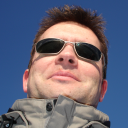
|
New docking windows for a better UI & extension integration
| New docking windows for a better UI & extension integration | |
| Topic | OpenOffice.org |
| Session/duration | talk / 45 |
| Speaker | Carsten Driesner |
| Biography | Carsten Driesner works for Sun Microsystems, Inc. and StarOffice/OpenOffice.org since 2000. He is the project lead of the framework project since 2006. |
| Abstract (1-2 paragraphs) | The main goal of the framework project is to provide low-level functions (like loading/storing documents, generic UI, OLE, filter management) to the application modules. As the generic OpenOffice.org UI is mainly based on framework code many aspects of the Project Renaissance must be implement there. This presentation wants to provide an overview about our latest plans to provide new and powerful docking window functions.
The presentation is split up into four different parts: 1. The current state of docking window design 2. The new docking window design 3. How can extensions profit from the new design 4. Future outlook |
| Description | coming soon... |
| Additional speaker info | http://wiki.services.openoffice.org/wiki/Framework |
| Speaker Photo (128x128 PNG) | .... |
Improving the OpenOffice.org Build System
| Improving the OpenOffice.org Build System | |
| Topic | OpenOffice.org |
| Session/duration | talk, 45 minutes |
| Speaker | Bjoern Michaelsen |
| Biography | Bjoern Michaelsen works for Sun Microsystems, Inc. and StarOffice/OpenOffice.org since 2008. He is the a member of the ongoing Build Environment Effort and a member of the Writer/Framework team at Sun. |
| Abstract (1-2 paragraphs) | The Build Environment Effort is an ongoing effort to update various aspects of the OpenOffice.org build environment. Some of the aims of this effort require to rethink the basic architecture of how OpenOffice.org is build.
This talk with present the results so far and how we are planning to go on. |
| Description | see http://blogs.sun.com/GullFOSS/entry/building_openoffice_org_with_gnu for details |
| Additional speaker info | |
| Speaker Photo (128x128 PNG) | 
|
Show me YOUR code
| Show me YOUR code | |
| Topic | OpenOffice.org |
| Session/duration | Workshop, 90-120 minutes |
| Speaker | Eike Rathke |
| Biography | Eike Rathke is a core developer and co-lead of the OpenOffice.org Calc spreadsheet application. Working on the spreadsheet core engine, formula compiler and interpreter since 1994. Also working on the number parser/formatter and doing related i18n work. He works for Sun Microsystems. |
| Abstract (1-2 paragraphs) | Show me the code YOU have written and want to be integrated. Talk about, identify and hopefully clear obstacles. Let's solve remaining problems together. |
| Description | The last two FOSDEMs I gave an overview of the Calc spreadsheet interpreter core, and showed how to debug and profile the beast. This year it is time YOU show me YOUR code. Go into details. Discuss your solution. Ask questions. If you would like to dive into your code at the workshop I'd appreciate if you made it available in advance so I can take a look. Send a mail to mailto:erack@sun.com?subject=FOSDEM%20code |
| Additional speaker info | http://wiki.services.openoffice.org/wiki/User:ErAck |
| Speaker Photo | 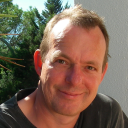
|
Just Testing
| Just Testing | |
| Topic | OpenOffice.org |
| Session/duration | talk/45 minutes |
| Speaker | Stephan Bergmann |
| Biography | Stephan has been working on all kinds of aspects of OpenOffice.org for well over a decade now, as a member of the StarOffice/OpenOffice.org development team at Sun Hamburg. |
| Abstract (1-2 paragraphs) | OpenOffice.org is too fat and too weird to let you simply apply your standard unit-testing-approach to writing correct code. Over the years, this has lead to the creation of a number of mechanisms within the OOo code base with which OOo developers can test the code they write and compile. Some of the mechanisms are, erm, creative, some are trivial. But what all the mechanisms have in common is that they all are brittle and all start to fail, in one way or another, sooner or later. Time to clean up. This talk will discuss where we intend to go, and probably tell a couple of anecdotes about where we came from. |
| Description | - |
| Additional speaker info | http://blogs.sun.com/gullfoss |
| Speaker Photo (128x128 PNG) | 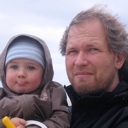
|
Hidden Pearls - What's There to ReUse for Other Projects
| Hidden Pearls | |
| Topic | OpenOffice.org |
| Session/duration | talk / 45 minutes |
| Speaker | Thorsten Behrens |
| Biography | Thorsten has been hacking on OpenOffice.org for many years. |
| Abstract (1-2 paragraphs) | This session presents a few examples of uniquely useful code inside OOo, plus a way for other projects to mine those pearls. |
| Description | This rant (except for the ranting) pretty much conveys the ideas I want to present here |
| Additional speaker info | [1] |
| Speaker Photo (128x128 PNG) | 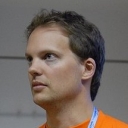
|